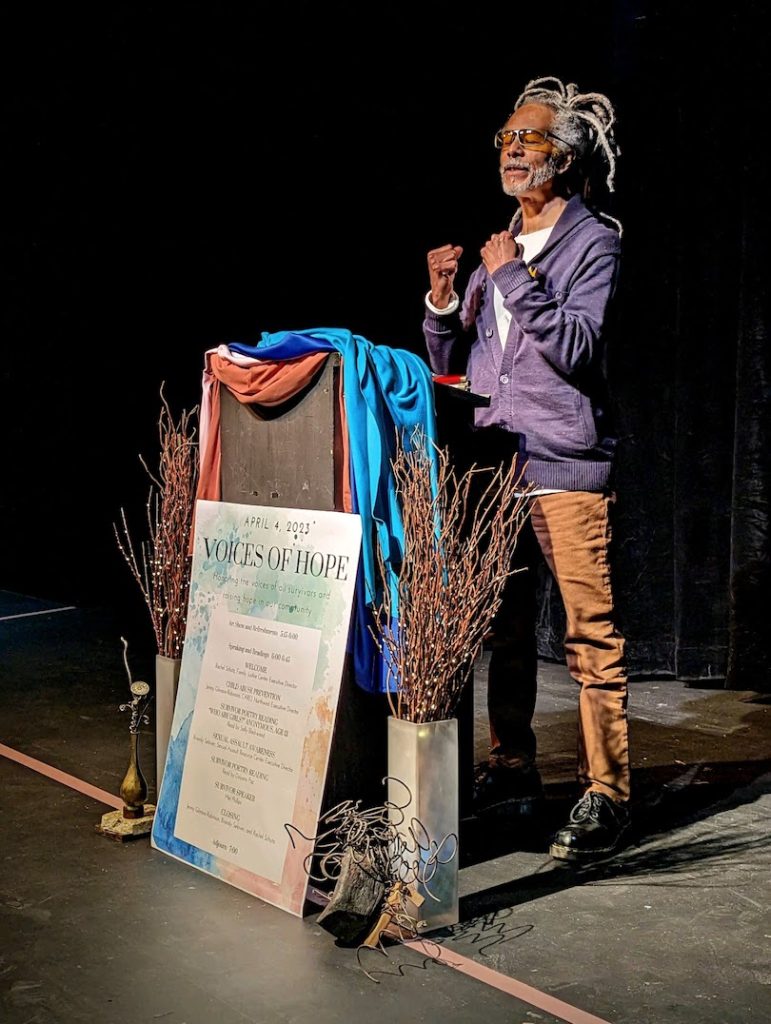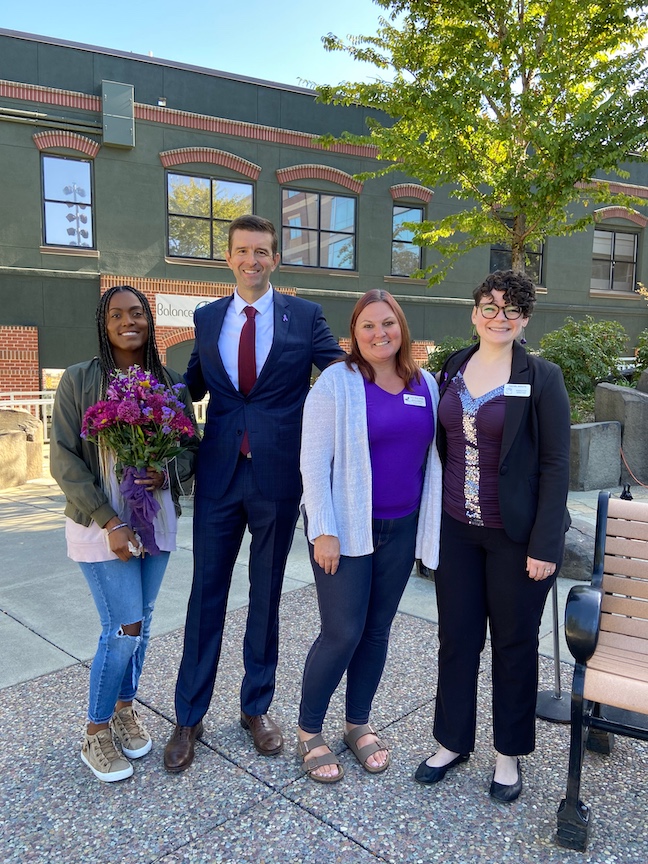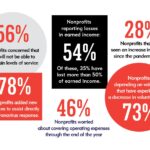Brand Story – The Family Justice Center, an independent nonprofit, coordinates services among multiple agencies to help survivors of domestic violence, sexual assault, and family abuse
Sexual violence and domestic abuse thrive in silence. The Family Justice Center of Washington County (FJC) and its partner agencies aim to bring abuse out of the shadows, not only to support survivors but to interrupt the cycle. Because Oregon has higher than national rates of domestic violence and sexual assault, says the FJC’s executive director, business leaders can be certain that survivors work for them.
“Forty percent of women and thirty-six percent of men in Oregon experience domestic violence,” she says. “Fifty-four percent of women here experience sexual assault, and sixty-nine percent of kids in Oregon experience childhood trauma. Even if it’s not happening to you, it’s happening to someone you know—whether you know it or not—so it becomes an all-of-us problem.”
Paid Leave Oregon, with benefits beginning in September 2023, includes a safe leave component that provides up to 12 weeks paid time off for survivors of sexual assault, domestic violence, harassment, or stalking. Someone who must request this type of leave opens a conversation that likely no one is used to having in the workplace, leaving managers and human resource professionals to educate themselves in preparation.

Strong collective impact
The FJC brings together 18 agencies in one physical location and coordinates services among them. Prior to the FJC’s creation in 2018, people had to navigate the system themselves, which meant figuring out which services they needed, contacting disparate agencies, explaining and repeating their stories multiple times, and traveling to various and dispersed locations.
“As a community, we wanted to do something better and offer more to survivors in Washington County,” says Rachel Schutz, FJC’s executive director. “We did a community map and figured out where all the different agencies were, what the steps were, and how many times someone would have to connect with all those places to get help. It’s challenging and that’s not even when you’re in a massively heightened emotional state from experiencing extremely traumatic situations.”
The co-located service model, used around the world, is considered a best practice in family violence intervention and prevention. It simplifies processes for survivors and allows collaboration among multiple agencies that share a common goal.
“It’s a lot of work. You can go fast if you go alone. But as the proverb goes, you can go far if you go together. This is what collective impact looks like,” says Schutz.
Currently, the FJC occupies a 14,000-square-foot rented building on the Beaverton-Hillsboro Highway accessible by public transportation. People arriving at the facility for the first time fill out a questionnaire that lists all available assistance options and can check off as many services as they need. Someone from the FJC then arranges meetings with relevant agencies, walks survivors through various processes, and facilitates as people move between offices.
Onsite partners at the FJC include the Domestic Violence Resource Center, the Sexual Assault Resource Center, law enforcement as well as organizations that offer legal services, support groups, crisis intervention, mental health services, and more. A food pantry and clothing closet provide basics, and people can use showers and receive meals while at the FJC. In addition, on-site childcare means children do not have to accompany parents to appointments. Every day at 1 p.m., the Washington County Circuit Court holds a virtual docket during which a judge rules on protective order petitions, so someone can fill out paperwork in the morning and receive a judge’s ruling that afternoon. Afterwards, the court shares restraining orders with the sheriff’s office, which can serve them that day.
FJC’s phone and internet services—provided by Comcast Business—ensure collaboration and connectivity and also serve clients when the building is closed. The voicemail system directs off-hour callers to every partner’s available crisis line.
“That twenty-four hour, seven-day-a-week reliable service that doesn’t go out allows us to help survivors even when our doors aren’t open,” says Schutz.
Comcast Business also supports the FJC through fundraisers, such as its Denim & Diamonds Gala.
“The FJC’s dedication to fostering a safe and compassionate environment aligns with our values of community empowerment and technological innovation,” says Allison Lawr, senior enterprise sales manager at Comcast Business. “We are proud to support its unwavering commitment to providing essential support and resources to those experiencing domestic violence.”

A focus on breaking the cycle
Though the FJC provides crucial support and services, its ultimate goal is to break the cycle of violence, though that is not an easy task. Its survivor advisory board, VOICES, meets monthly and helps inform the FJC’s work while also giving people the opportunity to support other survivors.
“When you have just intervention, you stop the bad thing from happening, but you don’t give people something else,” says Schutz. “So, a focus is giving people and their children that longer-term stability, community, and sense of belonging to something so they don’t have to turn back to what they had.”
By 2026, the FJC will expand to a larger, owned facility and transition into the Family Peace Center, bringing in child abuse.
Brand stories are paid content articles that allow Oregon Business advertisers to share news about their organizations and engage with readers on business and public policy issues. The stories are produced in house by the Oregon Business marketing department. For more information, contact associate publisher Courtney Kutzman.




